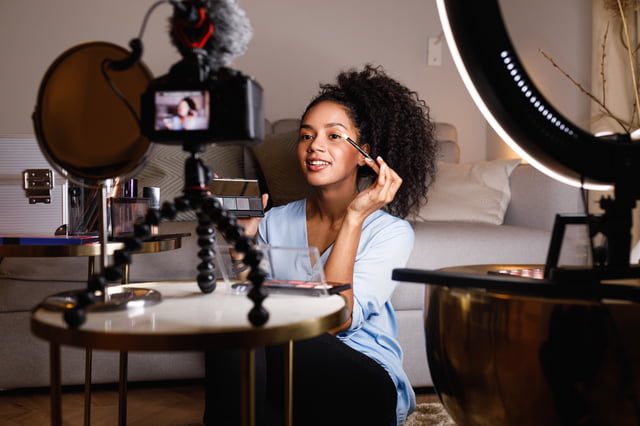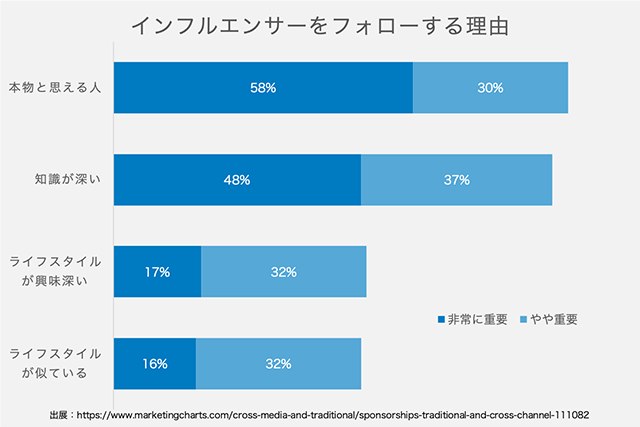Written by Takuya. Translated by Marc Wilkinson
Millennials, born between the 1980s and 2000, are a generation of digital pioneers who have witnessed and adapted to the arrival of the IT revolution. Generation Z, born in the late 1990s and early 2000s, is the generation of digital natives who have already been born in the digital world.
These are the generations of young people who are familiar with the Internet, and who will continue to play a leading role in the world and consume the most digital content. Having a better understanding to the characteristics of these young people, which are much different from those of older generations, will lead to a deeper insight and prediction of how they might shape world in the years to come.
It is well known that these young people are actively using social networking sites. With the rise of various social media, a new advertising method called “Influencer Marketing” was born, which is based on influential people using those platforms.
Morning Consult, an online research firm based in Washington, DC, USA, has published an “Influencer Report” that examined the scale and nature of influencer engagement based on a survey of over 2,000 people aged 13-38.
Which platforms do young Americans follow influencers on? Who do they want to follow? Why do they follow them and how much trust do they have in them? The Influencer Report answers these questions and more.
The Influencer Report compendium:

YouTubers outperform celebrities
For Gen Z, top YouTube influencers are as popular as celebrities and entertainers; among Gen Z young males, gaming YouTube star PewDiePie is as famous as NBA star LeBron James, and surpasses him in popularity.
The potential market for “micro-influencers,” influencers who have a strong influence in a particular community or genre, is also huge. All segments of Western youth are comfortable posting sponsored content, and the majority tend to post spontaneously about their favorite brands.
Among 13-16 year old Americans, it was shown that TikTok is more popular than Facebook. This video app has penetrated the older age groups of Generation Z. However, Instagram and YouTube remain the most influential social networking sites (social platforms).
Youth are paying more attention to social media influencers. Social media is increasingly becoming a central factor in consumer decision-making.
What are Millennials and Gen Z looking for in an influencer?

According to the survey, seven out of ten youth (Millennials and Gen Z) follow influencers on social networking sites. In a survey of more than 2,000 people between the ages of 13 and 38, Morning Consult found that the youngest respondents tended to follow more influencers.
So what do Millennials and Gen Z consider when deciding which influencers to follow?
The overwhelming majority (88%) of reasons are whether or not the person “seems genuine”. These youth are looking for influencers who are genuinely pursuing interests that they share. Of the 88% who follow influencers, 58% consider this to be particularly important, while 30% consider it to be somewhat important.
In addition, 85% of respondents choose influencers who are knowledgeable about what they are interested in, and 48% of these consider this to be very important.
An influencer’s lifestyle is less important when deciding whether or not to follow them. Only 49% say it is important to know if the influencer has a more exciting or interesting lifestyle than they do. Less than half (48%) say it is important that the influencer’s lifestyle is similar to their own.
Do people hate “acting” influencers?
While lifestyle is not a decisive factor in following influencers, another study (Why Consumers Unfollow Influencers) found that 7 out of 10 followers will stop following an influencer if they are grossly misrepresenting themselves or their lifestyle.
Influencer knowledge is a key factor for Millennials and Gen Z to follow. The knowledge provided by influencers is highly influential, with 57% of Millennials and 55% of Gen Z saying they are more likely to purchase products and services recommended by influencers.
In comparison, being the type of person who inspires followers increases the likelihood that 38% of Millennials and 41% of Gen Z will purchase products and services recommended by an influencer.
People trust influencers, but not as much as my friends and family.

88% of respondents said they have found a product they would like to purchase through a social networking site. While Instagram and YouTube are the most popular social platforms for both Millennials and Gen Z, one notable finding of the survey is that the youngest respondents (ages 13-16) may be using TikTok, which has seen rapid growth among U.S. adults over the past year, as well as Facebook and Twitter. TikTok, which has seen rapid growth among U.S. adults over the past year, may be used in the same way as Facebook and Twitter.
It should be noted, however, that the U.S. government is currently investigating TikTok’s parent company, raising concerns among advertisers about brand protection.
This leads to trust issues with social network influencers. Three out of five respondents have a great deal of trust (10%) or a certain amount of trust (47%) in what social networking influencers are promoting or endorsing for their brands or products. The level of trust is higher among those who shop on social networking sites more frequently, with 25% having great trust in influencers and 56% having a medium level of trust.
However, the survey also found that influencers’ recommendations about brands and products are not always the most trusted sources of information. While the majority (84% of Millennials and 82% of Gen Z) say they trust their friends and family for brand and product recommendations, 50% of Millennials and 52% of Gen Z say they trust the influencers they follow on social networking sites.
Based on the survey results
The results of this survey on social networking among Millennials and Gen Z show how effective influencers are in winning the hearts and minds of today’s youth. And in promotion, it may be possible to use influencers in addition to celebrities in movies and dramas. This report is very useful in considering promotions for Millennials and Gen Z. By understanding the situation in the U.S., which is several years ahead in terms of consumption trends, it will be very helpful for influencer marketing in Japan, which usually follows a similar pattern.
Sources:
MarketingCharts
We want to listen to you – what are your goals, your needs, metrics for success. After we have that background information, we’ll develop a written proposal, working within your budget. Feel free to ask us!
広報PRの基礎知識
広報PRの課題解決
We want to listen to you – what are your goals, your needs, metrics for success. After we have that background information, we’ll develop a written proposal, working within your budget. Feel free to ask us!
Please feel free to contact us if you have any questions about consulting, planning, etc.
Reception hours: 10: 00-18: 00 (weekdays)